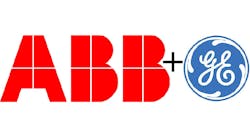Latest from Industry
Rep News - December 6, 2024 Update
3Q 2024 Business Conditions & Latest Pricing Trends
AD-IMARK Finalize Merger
ABB’s agreement to acquire GE Industrial Solutions, GE’s global electrification solutions business, for approximately $2.6 billion has been widely applauded in the electrical industry as a good fit and a solid platform for a company increasingly interested in growing its share of the U.S. electrical equipment market. ABB executives point to GE’s established distribution base and brand recognition as important factors in its decision.
Combined with its acquisitions of Baldor motors in 2010 and Thomas & Betts low-voltage electrical installation equipment in 2012, ABB will now have a footprint in the U.S. electrical market to rival major players such as Schneider Electric and Eaton Corp. ABB said integrating GE Industrial Solutions into its existing holdings will make it the #2 player in electrification globally, behind Schneider Electric.
GE Industrial Solutions, headquartered in Atlanta, makes circuit breakers, switchgear and other low-voltage electrical equipment, as well as specialized lighting control and power supply equipment for data centers, hospitals and other critical facilities. The business has about 13,500 employees around the world and, in 2016, revenues of approximately $2.7 billion, 60% of that in North America.
With the business comes 29 manufacturing facilities, 19 distribution centers, 13 service centers and 9 research and development centers, with operations in over 100 countries. Perhaps equally important, GE Industrial Solutions has channel relationships with over 1,000 distributors in the United States market.
Doug Schuster, global head of ABB Installation Products, told Electrical Marketing that that distribution footprint was an important consideration in the acquisition. “One of the most significant reasons we felt this acquisition was so important to us was to gain access to the largest market in the world, especially one where the distribution channel is so critical,” Schuster said. “Fortunately I think ABB has had good history, with T&B and with Baldor and some of the other acquisitions, in how we’ve worked with the channel and really supported and tried to add more value to our partners in the process. We really view combining GE Industrial Solutions as just a next step in creating what we think is a tremendous product portfolio solution to support our channel.”
Adding GE Industrial Solutions fills some gaps in ABB’s overall electrical equipment product offerings for the North American market, primarily in the areas of low-voltage protection and control, building products and critical power equipment. In areas where there are overlaps, such as medium-voltage protection and control, Schuster said ABB will seek to go in without any assumptions, sit down with the GE Industrial Solutions team, and walk through the portfolio product by product to determine what is the “best of the best” in the market.
GE Industrial Solutions will be integrated into ABB’s Electrification Products (EP) division. ABB will retain the GE Industrial Solutions management team and build upon its experienced sales force.
As part of the transaction, ABB will have long-term use of the GE brand and an agreement to establish a long-term, strategic supply relationship for GE Industrial Solutions products and ABB products that GE sources today, the ABB release said.
Despite ABB’s recent moves to highlight its brand alongside legacy brands it has acquired, adding the GE logo to a suite of products has undeniable benefits, Schuster said.
“ABB has very aggressively this year put out a strong brand-building effort through the ABB company overall. Having said that, ABB very much understands and recognizes the value that brands bring. Part of the deal with GE was getting long-term access to the GE brand: huge brand equity, huge brand history,” he said. “When we finally close the deal, GE Industrial Solutions will exist as GE Industrial Solutions. In the same way, at Thomas & Betts, we have maintained very strong product branding. Over time certainly from a group or corporate level, ABB is the company. ABB is the brand. Underneath that we will continue to use the strong product brands that go along with that, including GE.”
In a slide deck provided with its release, ABB said the deal to buy GE Industrial Solutions will cost an estimated $400 million but will produce increasing cost savings over time, up to $120 million in year three and $200 million in year five. The cost savings or “synergies” will come from product and portfolio harmonization, footprint optimization, supply chain savings and sales, general and administrative (SG&A) cost reductions.
In addition to its high-profile acquisitions of Baldor and T&B, ABB has made other billion-dollar acquisitions in the U.S. market, adding solar inverter maker Power One in 2013 and electric grid management software provider Ventyx in 2010.
“With GE Industrial Solutions, we strengthen our #2 position in electrification globally and expand our access to the attractive North American market,” said ABB CEO Ulrich Spiesshofer in the release. “Combined with the long-term strategic supply relationship with GE, this transaction creates significant value for our shareholders.”









